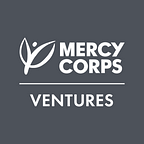Pilot Insights | Improving Clean Water Access via Decentralized Web3 Networks
India is facing a water crisis. Over the past half century, water availability in India declined by 75%, while the country’s population grew by more than 1 billion. As available water has declined, the distance and time it takes for individuals to collect water consumes a significant portion of daily life. According to UNICEF, 54% of rural Indian women spend 35 minutes each day acquiring water. Moreover, as the effects of climate change take hold, South Asia’s life-giving monsoons are becoming more erratic, causing droughts to last longer than before.
In December 2022, Mercy Corps Ventures partnered with Atlantis DAO to launch a pilot in rural India that developed a decentralized peer-to-peer water network for underserved groups to access clean water resources, while providing the opportunity to earn income through incentive schemes.
Via a web3-enabled mobile app and its marketplace, a total of 3,859 people engaged in assessment, production, and distribution of clean water, resulting in improved water conditions for a population of 45,000 across five remote villages in the Chikmagalur district of Karnataka, India.
Insights in Brief
The pilot resulted in time and cost savings for consumers due to improved access and the reduced distance to water supply sources. 77% of surveyed participants reported that the time and effort they expended to acquire water had improved. Additionally, 61% of surveyed participants reported improved affordability of water after using the Atlantis Citizen App.
The pilot led to improvements in the financial resilience of participants who earned Karma (utility token) through the completion of “bounties.” 64% of surveyed participants reported that earning Karma increased their ability to purchase goods and withstand shocks. Additionally, women were 1.5 times more likely than men to report improvements in financial strength, as a result of earning Karma.
The pilot led to improvements in the community’s water coordination by automating transactions and compensation via smart contracts. 59% of surveyed participants reported that Atlantis improved how their community worked together towards common goals. Additionally, by handling token payments and paying drivers directly, Atlantis reduced the payment time for water truckers by 3.5 times (250%+) from 3–4 days to 14 days.
This report is the second of a two-part series. The first blog outlined the pilot launch, our learning questions, and the hypotheses we set out to prove. This final report provides an in-depth study of the market need, the pilot’s impact, and the key findings. If you’re short on time, have the TL;DR here.
Written by Timothy Asiimwe, Innovation Project Manager, Mercy Corps Ventures.
